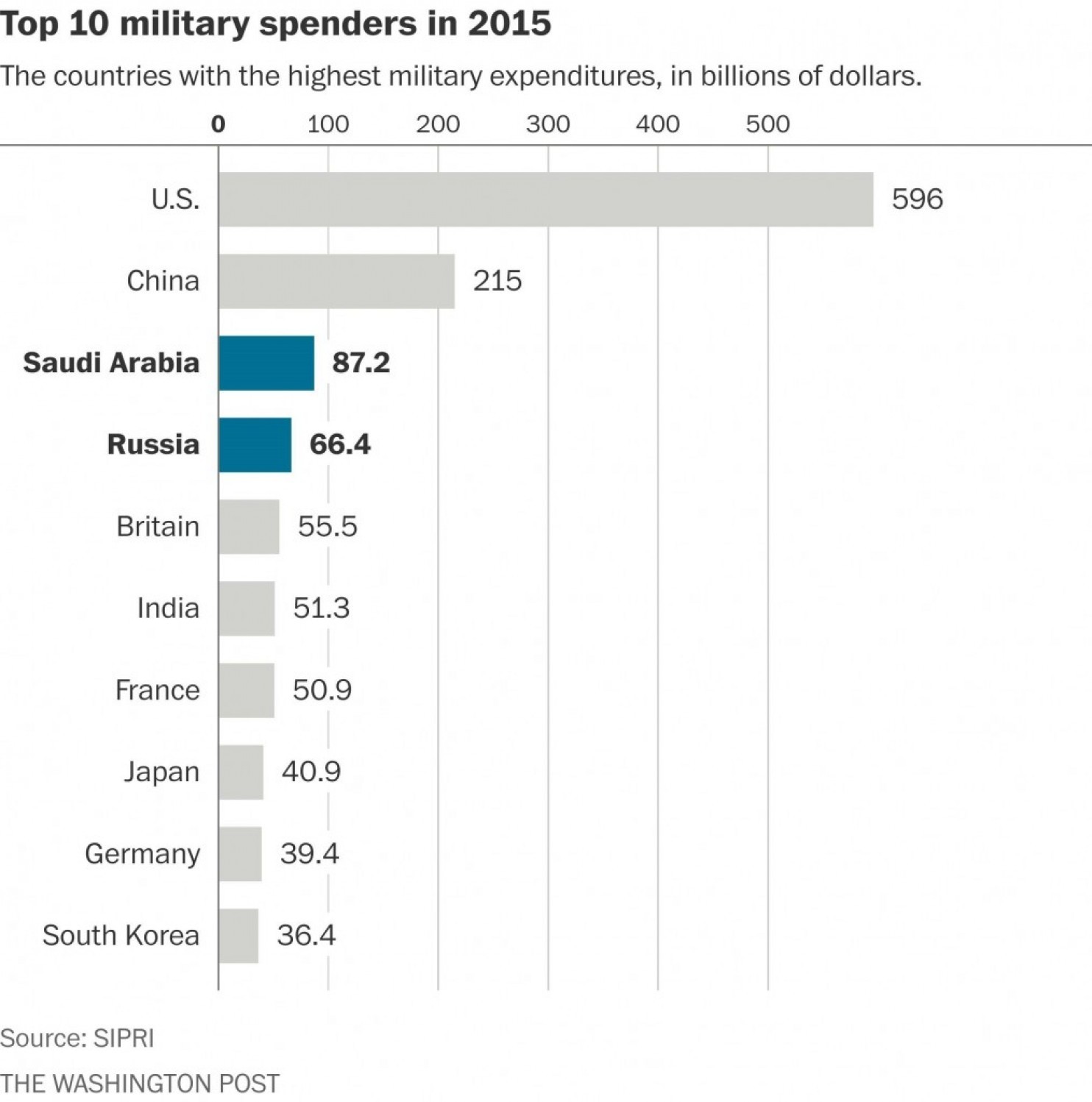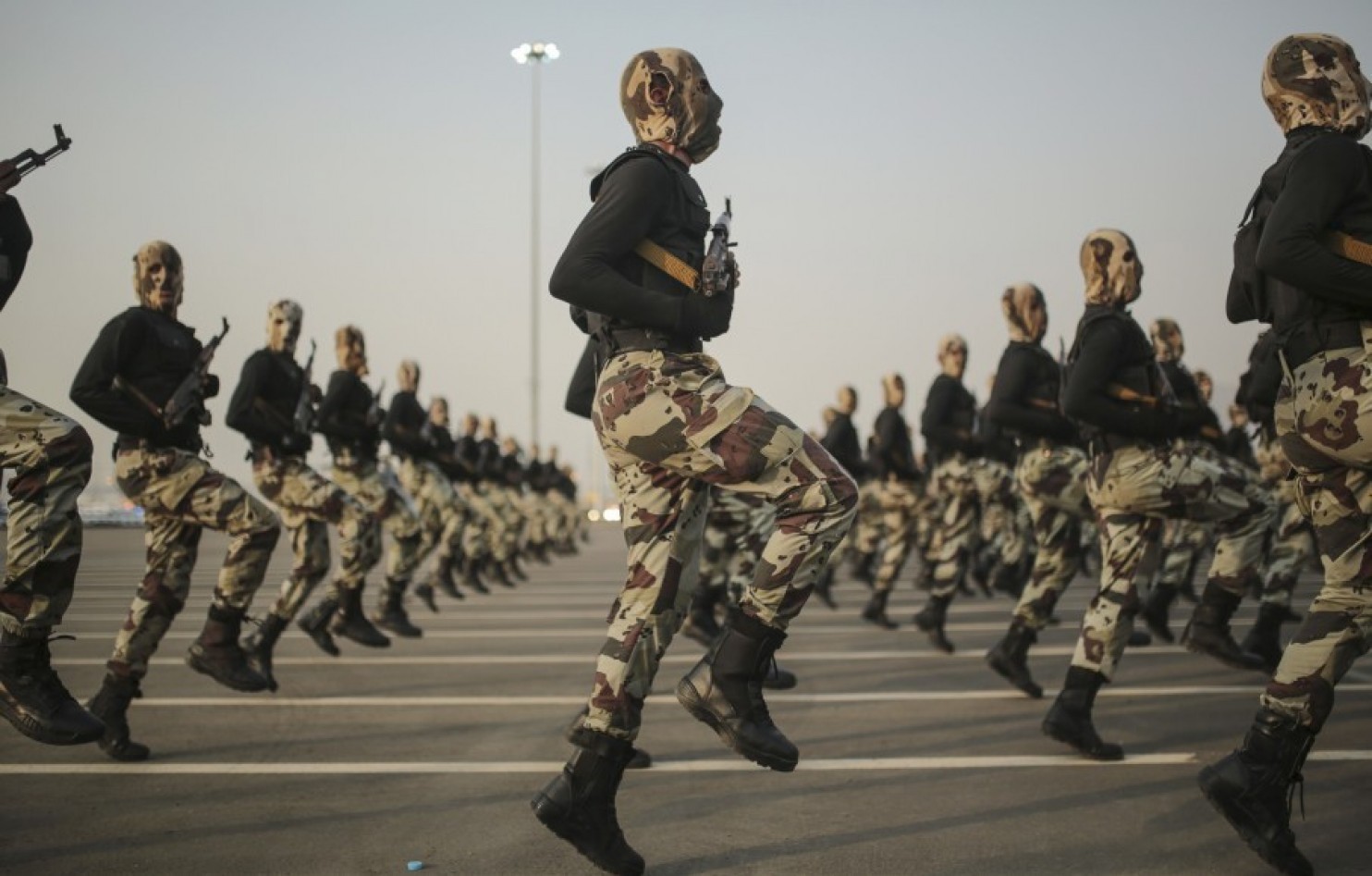"Saudi Arabia overtook Russia to become the third-largest spender, mainly due to the fall in the value of the rouble."
Global military spending reached almost $1.7 trillion in 2015, marking a year-on-year increase for the first time since 2011, according to the Stockholm International Peace Research Institute, which tracks arms expenditure around the world.
The United States remained far and away the top spender, which despite a dip from 2014, accounted for more than a third of total global spending. It was followed by China and then, perhaps surprisingly, Saudi Arabia, which supplanted Russia in third place. (The figure for China in the chart below is based on a SIPRI estimate.)
Part of this splurge can be attributed to Saudi Arabia's entanglement in a costly war in Yemen, which has raged for more than a year now. Since 2006, Saudi annual military spending has nearly doubled. That figure is roughly the same, too, for Russia.
But, as SIPRI's report notes, the drop in oil prices worldwide has otherwise had huge effects on arms sales in general.
"Saudi Arabia overtook Russia to become the third-largest spender, mainly due to the fall in the value of the rouble," the Washington Post quoted the SIPRI report as noting.
 The two most dramatic dips in military expenditure were in Venezuela, where it decreased by 64 percent, and Angola, whose spending dropped by more than 40 percent. Both countries' economies are dependent on oil exports.
The two most dramatic dips in military expenditure were in Venezuela, where it decreased by 64 percent, and Angola, whose spending dropped by more than 40 percent. Both countries' economies are dependent on oil exports.
Meanwhile, Asia's militarization proceeded apace — spending in the region rose 5.4 percent in 2015, largely as a consequence of China's ongoing build-up and the increased wariness of neighbors, such as Vietnam and the Philippines.
"Military spending in 2015 presents contrasting trends," said Sam Perlo-Freeman, head of SIPRI’s military expenditure project, in a statement.
"On the one hand, spending trends reflect the escalating conflict and tension in many parts of the world; on the other hand, they show a clear break from the oil-fueled surge in military spending of the past decade. This volatile economic and political situation creates an uncertain picture for the years to come."